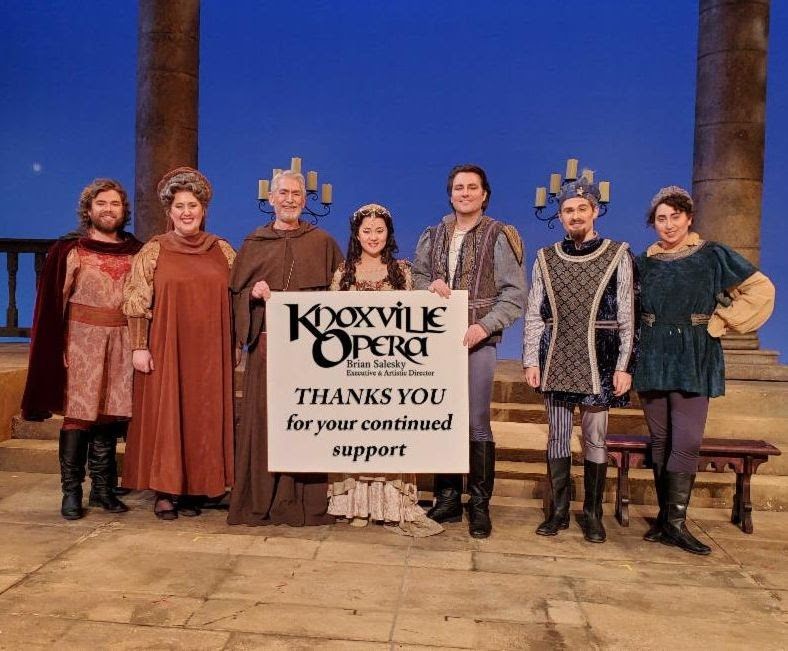Music and theatre history are filled with legendary “incompletions.” Among them, Schubert had his inexplicable “Unfinished Symphony,” Mozart’s mysterious death yielded his fragmented Requiem, and cancer prevented Puccini from providing a final scene for Turandot. Now, the tragic virus crisis has caused the entire performing arts world to cut short its finales for the 2019-2020 season.
At Knoxville Opera we unfortunately had to cancel 25 presentations in schools and community venues including the Tennessee Premiere of Okoye’s “Harriet Tubman” and the 19th Annual Knoxville Opera Rossini Festival. However, prior to mid-March, we had a robust “banner year” providing 75 programs for about 10,000 students and 11,000 adults. These included “Madama Butterfly” and “Romeo et Juliette” at the Tennessee Theatre, the 11th annual Knoxville Opera Goes to Church concert at New Covenant Baptist Church, and 17 performances of Romeo and Juliet in schools. In addition, our vital relationship with the University of Tennessee provided 75 performing opportunities for 26 current and former UT School of Music students.
During the crisis, even though our building has been closed, we have continued to work every day on fundraising and making contingency plans for a 2020-2021 season. With patience, caution, perseverance, and creativity, we look forward to serving you, our East Tennessee community, with glorious music and theatre again – as soon as possible. Thank you for your continued support, which is critical to our future.
What’s Opera, Doc?

In 1957, Bugs Bunny asked the eternal question at the end of this classic masterpiece: “Well, what did you expect in an opera … a happy ending?”
The question, expanded to our expectations of the entire genre, is deeply relevant today as producers and the public ponder the future of opera. My answer to Bugs’ question is a resounding “Yes!” I do expect the live opera experience to have a happy ending. During the virus crisis, companies large and small will be challenged to create “operatic experiences” in a variety of safe environments.
Thinking “outside the box” will be required for everyone concerned. Performers may be required to relate and emote apart from each other. Orchestra musicians may need to wear masks and/or be separated by Plexiglas screens. Audiences may be required to go through health screening procedures when entering venues and be seated in a socially-distanced arrangement.
The public will also need to be willing to appreciate opera in unexpected places and in unusual formats to allow for distancing and reduced budgets (e.g. concert opera, staged productions without scenery, smaller orchestras and choruses). In fact, this crisis may yield new and exciting options for the future of the art form as well.
Fundamentally, despite the limitless access to recordings of opera in the digital world, what opera is, Doc, is that magical live, visceral experience of enjoying the glory of the human voice accompanied by vocal and instrumental ensembles, telling timeless tales which touch us deeply. With the public’s continued support of our companies, I am certain that opera will thrive in the future.
For fans of the 1957 cartoon, I offer this terrific look back on its birth with some of the original creators. Thank you, Bugs, for keeping us smiling!
Brian Salesky is executive and artistic director of Knoxville Opera.
Hear a message (and some snazzy piano) from Brian with a click below.

